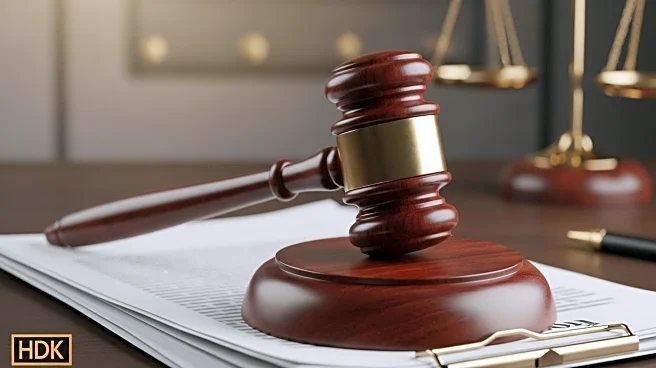What's Happening?
A federal judge in Florida has dismissed President Trump's $15 billion defamation lawsuit against the New York Times, citing the complaint's excessive length and failure to adhere to court rules requiring concise claims. The lawsuit accused the Times of defaming Trump through articles and a book published during the 2024 election cycle. Judge Steven Merryday criticized the complaint for its repetitive and superfluous content, allowing Trump's legal team 28 days to refile a revised version limited to 40 pages.
Why It's Important?
The dismissal of Trump's lawsuit underscores the legal challenges involved in defamation cases, particularly those involving public figures and major news organizations. It highlights the importance of adhering to procedural rules in legal filings and the difficulties in proving defamation against media outlets. The case reflects ongoing tensions between Trump and the press, with implications for media freedom and the role of journalism in political discourse. The outcome may influence future legal strategies in defamation cases involving high-profile individuals.
What's Next?
Trump's legal team is expected to revise and refile the lawsuit within the 28-day deadline set by the court. The revised complaint will need to address the judge's concerns about its length and content. The case may continue to attract public attention, potentially impacting Trump's relationship with the media and influencing public perceptions of his legal battles. The New York Times and other media organizations will likely monitor the case closely, as it could affect their reporting practices and legal defenses.
Beyond the Headlines
The case raises broader questions about the balance between free speech and defamation law, particularly in the context of political figures. It highlights the challenges faced by public figures in pursuing defamation claims and the potential impact on media freedom. The lawsuit also reflects the contentious relationship between Trump and the press, which has been a defining feature of his political career. The outcome may influence future interactions between political figures and media organizations, shaping the landscape of political journalism.









